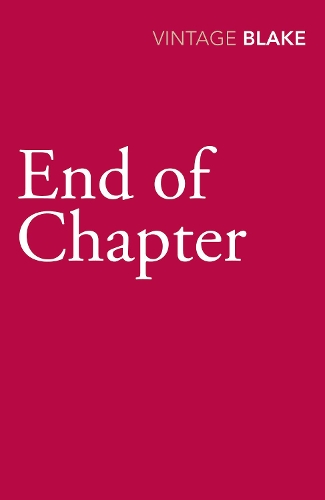
End of Chapter
(Paperback)
Publishing Details
End of Chapter
By (Author) Nicholas Blake
Vintage Publishing
Vintage
29th May 2012
United Kingdom
Classifications
General
Fiction
Physical Properties
Paperback
224
Width 129mm, Height 198mm, Spine 13mm
150g
Description
READ ALL AGATHA CHRISTIE TRY A VINTAGE MURDER MYSTERY In the twelth Nigel Strangeways mystery an esteemed publishing firm has been sabotaged. But worse is still to come when one of their bestselling authors is murdered - in the publishers' offices. Can Nigel Strangeways catch the killer A VINTAGE MURDER MYSTERY Wenham & Geraldine are a long-established and very well respected publishing firm, so when a printer's proof is sabotaged and libellous passages are mysteriously reinstated, they call in private detective Nigel Strangeways. But the situation takes a turn for the worse when one of the publishers' best-selling authors - glamorous novelist Millicent Miles - is found dead in the offices. A Nigel Strangeways murder mystery - the perfect introduction to the most charming and erudite detective in Golden Age crime fiction.
Reviews
An adroit formal detective puzzle...and a knowing picture of publishing * New York Times *
The Nicholas Blake books are something quite by themselves in English detective fiction -- Elizabeth Bowen
His plots are ingenious * Times Literary Supplement *
A master of detective fiction * Daily Telegraph *
Author Bio
Nicholas Blake was the pseudonym of Poet Laureate Cecil Day-Lewis, who was born in County Laois, Ireland in 1904. After his mother died in 1906, he was brought up in London by his father, spending summer holidays with relatives in Wexford. He was educated at Sherborne School and Wadham College, Oxford, from which he graduated in 1927. Blake initially worked as a teacher to supplement his income from his poetry writing and he published his first Nigel Strangeways novel, A Question of Proof, in 1935. Blake went on to write a further nineteen crime novels, all but four of which featured Nigel Strangeways, as well as numerous poetry collections and translations. During the Second World War he worked as a publications editor in the Ministry of Information, which he used as the basis for the Ministry of Morale in Minute for Murder, and after the war he joined the publishers Chatto & Windus as an editor and director. He was appointed Poet Laureate in 1968 and died in 1972 at the home of his friend, the writer Kingsley Amis.
